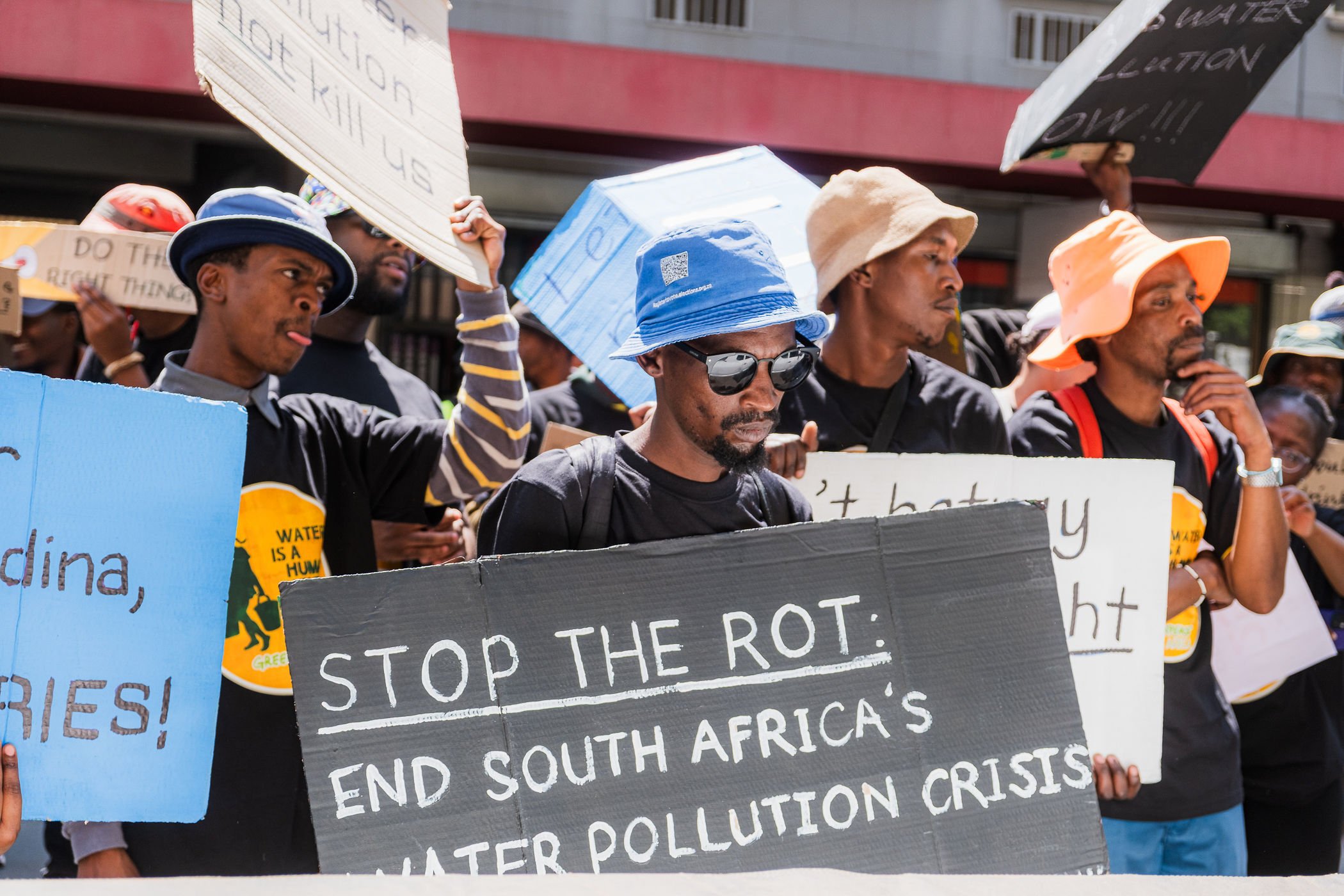Johannesburg, South Africa – 14 November 2018 — Greenpeace Africa strongly opposes the unlawful decision by the Department of Environmental Affairs to weaken sulphur dioxide (SO2) emission standards for coal-fired power stations. This far reaching decision was taken secretly without any public consultations with impacted and interested groups.
In October 2018, the department’s updated framework for Air Quality Management, significantly weakened the minimum emission standards (MES). The MES for new installations was originally set at 500 mg/m3 of SO2, but these MES were revised by the Department upward on October 26 2018 to 1000 mg/m3, which is 30 times more than coal-fired power stations are allowed to emit in China.
‘Greenpeace Africa strongly condemns the decision of the Department of Environmental Affairs to further weaken air pollution standards. This upward revision of minimum emission standards for coal-fired power stations is outrages and incredibly irresponsible given the grave impacts of SO2 on air quality, human health and our environment. This revision was also not part of the original public participation proposal and therefore undemocratic and potentially illegal’, says Melita Steele, Campaign Manager for Climate and Energy at Greenpeace Africa.
Compared with many other countries South Africa has relatively weak Minimum Emission Standards, that allow existing coal-fired power stations to emit 3500 mg/m3 of SO2, which is up to 100 times more SO2 than is allowed in China, Japan, or the European Union, and up to 10 times more SO2 than is allowed in countries like Thailand and Vietnam.
Nonetheless, the majority of Eskom’s ancient and highly polluting coal-fired power stations do not comply with these MES. In 2015, Eskom was granted a five year postponement from complying with MES.
Greenpeace Africa just released groundbreaking satellite data revealing Mpumalanga province – which has a cluster of 12 coal fired power stations owned and operated by Eskom, with a capacity of more than 34 Gigawatts – as the world’s largest NO2 air pollution hotspot across six continents.
Unreleased (and ongoing assessed) satellite data about SO2 indicates that Eskom’s coal power plants are also one of the largest manmade sources of the pollutant globally. Resulting in several adverse effects on human health.
This unlawful act, is unconstitutional. We call on the department to undertake proper steps before making such decisions that impact people’s lives.
Media Contact:
Oliver Meth, Communications Specialist – Greenpeace Africa, 060 604 6690 [email protected]



